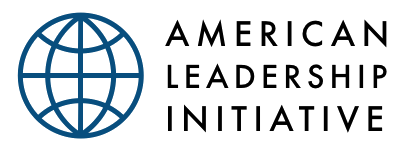Congressional China Forum
/Attendees:
Congressman Earl Blumenauer
Congressman Gerry Connolly
Congresswoman Suzan Delbene
Congresswoman Chrissy Houlahan
Congressman Ron Kind
Congressman Rick Larsen
Doug DeMark Photography LLC
Congressman Brad Schneider
The American Leadership Initiative had a policy discussion on Meeting the China Challenge with seven members of Congress and senior congressional staff, along with thought leaders from business, think tank and civil society communities. The discussion centered on developing a new paradigm for addressing the economic challenge posed by China, using the China paradigm piece as a framework for the discussion.
Key discussion points included:
· President Trump’s tariff trade war approach is moving the U.S.-China relationship in the wrong direction and imposing significant costs on American industry, farmers and consumers.
· The U.S. needs to address China’s non-market policies in close coordination with its allies and use existing institutions where possible, as opposed to challenging China bilaterally. Our allies may prefer to take a somewhat different approach and the U.S. should prioritize finding common ground and developing collaborative strategies to jointly address China’s non-market policies.
· The WTO may not have all the tools to address China’s practices, however, the U.S. should nonetheless use it more aggressively than it has to date. Although many cases were filed under the Obama Administration, cases that challenged China’s basic practices were avoided. The U.S. should explore filing a nullification and impairment case against China at the WTO.
· Leaving TPP was a costly mistake, in terms of addressing China. The U.S. needs to be proactive in negotiating more high-standard plurilateral and regional agreements, outside the WTO, including rejoining the CPTPP, a high standard digital agreement, and a trade agreement with the EU.
· The U.S. should be more aggressive in offering developing countries an alternative to China’s Belt and Road. China is making dramatic strides into Africa and other developing countries with infrastructure and especially with digital technology. China is including authoritarian software for population monitoring and control when it sells its hardware. In Zimbabwe, the Chinese digital infrastructure has brought in local Chinese media and kept out international and local independent news. The U.S. needs to offer countries financial assistance, “a Digital Marshall plan,” to allow them to choose non-Chinese equipment.
· The U.S. has the best technology in the world and should pursue policies that better support its technology and ensure its global competitiveness. The U.S. has taken some positive steps in restricting certain Chinese companies and should continue to implement policies that will protect the U.S. and its allies against cybertheft and infiltrations.
· The U.S. needs to support the rule of law both in China and in their dealings with the rest of the world. It is important to address “corrosive capital” coming from China which undermines the rule of law, advocate for internet norms which support openness and transparency, as well as address China’s massive human rights violations.
· While looking to counter China’s non-market practices in, the U.S. should continue to maintain bilateral dialogs on trade and seek to cooperate with China in areas where the two countries have common ground, such as climate change and disaster relief.
· Bolstering U.S. competitiveness is the most important tool in our toolbox in meeting the China challenge. The U.S. must focus on making its economy more competitive by significantly increasing investment in R&D and education and providing a robust social safety net.









